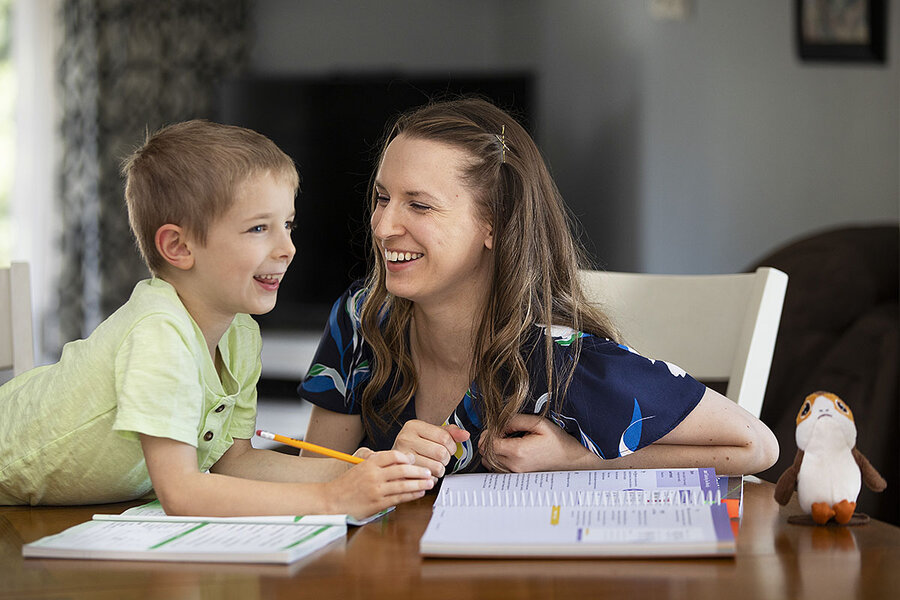Seven Effective Parenting Strategies for Early Education
Enhance your child’s early education experience with seven powerful parenting strategies. Engage in fun activities and nurture a love for learning through exciting education. Create stability with a structured routine and teach valuable life skills. Embrace play-based learning for cognitive and social development. Cultivate strong communication skills through active listening and open expression. Foster a positive mindset by instilling resilience and optimism. These strategies focus on building a foundation for your child’s future success and well-being.
Key Takeaways
- Engage in fun educational activities to spark curiosity and excitement.
- Implement a structured routine for stability and consistency.
- Incorporate play-based learning for cognitive and social development.
- Focus on building strong communication skills through active listening and support.
- Cultivate a positive mindset by nurturing resilience and optimism.
Encouraging a Love for Learning

To foster a love for learning in your child, engage in activities that make education fun and exciting. Reading books together is a fantastic way to spark curiosity and imagination in your little one. Choose a variety of books that cater to their interests, whether it’s animals, adventure, or fantasy. Make reading a special bonding time where you can explore new worlds together through stories.
Another great way to encourage a love for learning is by exploring nature. Take your child on nature walks, visit parks, or simply spend time in your backyard observing plants and animals. Nature provides endless opportunities for discovery and learning. Encourage your child to ask questions, make observations, and engage with the environment around them.
Setting a Structured Routine
To establish a sense of stability and predictability in your child’s day, implementing a structured routine can be highly important in fostering a conducive learning environment. Consistency is vital when setting a routine. Create a schedule that includes specific times for waking up, meals, playtime, learning activities, and bedtime. This consistent schedule helps children understand what to expect each day, promoting a sense of security and organization.
Effective time management is essential in maintaining a structured routine. Prioritize activities based on their importance and allocate time slots accordingly. This will help you balance educational tasks with playtime and make sure that your child receives a well-rounded early education experience.
Setting a structured routine also teaches children valuable life skills such as time management, discipline, and responsibility. As you establish and maintain this routine, remember to be flexible and make adjustments as needed to accommodate your child’s evolving needs.
Embracing Play-Based Learning

Consider incorporating play-based learning into your child’s early education to enhance their cognitive, social, and emotional development. Play-based learning involves interactive exploration and creative expression, allowing children to learn through hands-on experiences and imaginative activities.
By engaging in play, children can develop problem-solving skills, boost their creativity, and enhance their ability to cooperate with others.
Through activities like building blocks, pretend play, and sensory experiences, children can cultivate essential skills in a fun and natural way. Play-based learning not only fosters cognitive development but also promotes social interactions and emotional regulation.
It encourages children to express themselves freely, build confidence, and learn how to navigate different social situations.
Building Strong Communication Skills

Enhance your child’s ability to connect and express themselves effectively by focusing on building strong communication skills early on in their education journey. Active listening plays an important role in developing these skills. Encourage your child to listen attentively to others, teaching them the value of understanding different perspectives. By modeling active listening yourself, you set a positive example for your child to follow.
In addition to active listening, providing effective feedback is essential. Offer specific praise for their efforts and achievements, highlighting what they did well. When offering constructive criticism, focus on the behavior or action rather than the child themselves. This helps them understand that mistakes are opportunities for growth and improvement.
Engage your child in conversations that spark their curiosity and encourage them to express their thoughts and feelings openly. By creating a supportive environment where communication is valued, you lay a strong foundation for their future success in both academic and social settings.
Cultivating a Positive Mindset
Optimism and resilience are key attributes that can be nurtured through actively cultivating a positive mindset in your child’s early education journey. By fostering resilience, you help your child bounce back from challenges, teaching them that setbacks are temporary and can be overcome.
Promoting a growth mindset encourages a love for learning and a belief that abilities can be developed through dedication and hard work.
Instilling confidence in your child is essential. Encourage them to embrace challenges, knowing that mistakes are opportunities to learn and grow. Praise their efforts and persistence rather than just their achievements. By nurturing self-esteem, you help your child develop a strong sense of self-worth and belief in their capabilities.
Help your child see the bright side of situations. Encourage them to focus on solutions rather than problems. Teach them to reframe negative thoughts into positive ones.
Frequently Asked Questions
How Can I Handle My Child’s Resistance to Learning?
When your child resists learning, use motivating techniques like rewards, behavior management, and understanding their learning preferences. Offer emotional support, create a positive environment, and be patient. Consistency and encouragement can help overcome resistance.
What Are Some Tips for Managing a Chaotic Routine?
To manage a chaotic routine, focus on time management and consistency. Establishing routines is key but stay flexible. Create a schedule that works for your family, prioritize tasks, and communicate openly to maintain organization and reduce stress.
Can Play-Based Learning Be Effective for All Subjects?
Yes, play-based learning can be effective for all subjects. By incorporating subject-specific themes and activities into play, you can make learning engaging and practical. It helps children grasp concepts more easily and retain information better.
How Do I Improve Communication With My Child?
To improve communication with your child, practice active listening to show you care. Use positive reinforcement to encourage open dialogue. Set clear boundaries for respectful interactions. These steps can strengthen your relationship and understanding.
How Can I Maintain a Positive Mindset During Challenging Times?
To maintain a positive mindset during tough times, focus on mindset management. Utilize coping strategies like deep breathing or journaling. Cultivate positivity by practicing gratitude daily. Building resilience involves seeking support, staying mindful, and embracing challenges with a growth mindset.
Conclusion
Incorporating these seven effective parenting strategies for early education can make a big difference in your child’s learning journey. By encouraging a love for learning, setting a structured routine, embracing play-based learning, building strong communication skills, and cultivating a positive mindset, you’re laying a solid foundation for their future success.
Remember, education starts at home, and with your support and guidance, your child will thrive both academically and personally. Keep up the great work, parents!

Hey there! 👋 I’m a proud mom and passionate writer, sharing my parenting journey. 📝 Join me as I navigate the ups and downs of motherhood, offering tips, advice, and a sprinkle of humor along the way. 🌟







